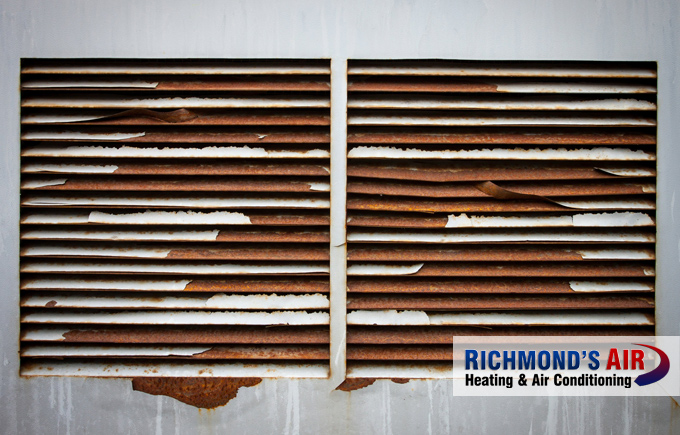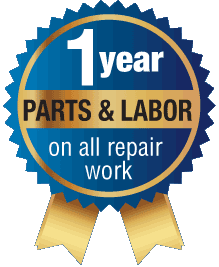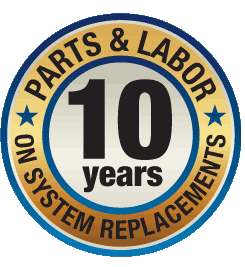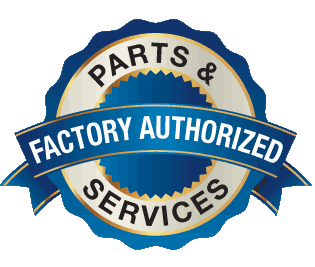How to maintain your home’s AC unit and avoid rust
Deterioration from corrosion is an expensive and common issue among heating, ventilation and air conditioning (HVAC), particularly here in humid Houston, TX. If allowed to go unchecked, rust can lead to serious repairs or having to replace the entire unit well before its lifespan. Corrosion is the result of elemental exposure and is one of the major reasons for HVAC unit failure.
If you notice that you have this problem, there are ways to remove rust and solutions to prevent it from happening again. We’ll go over some of these tricks below. If you have any questions or would like a professional to take a look, we invite you to contact our Houston A/C repair technicians for help right away.
What causes your AC to rust?
Weathering elements are hard on any type of metal devices. Rust emerges on units like your HVAC due to different types of exposure. Rust starts attacking units because of the ions and salt that is in the atmosphere. The ions are formed in areas that have humid, damp or changing weather conditions, and eventually lead to the overall downfall of your HVAC unit.
In Houston, the combination of the hot and humid weather, plus the proximity to the ocean, makes rust a particularly common problem in the area.
Most Houston houses will have the units in locations where they are protected, but moisture can get into anything if it is not properly maintained. A modern AC unit should be designed to withstand these elements, but rust can still occur. In most cases because of their location, HVAC units are forgotten and allowed to gather rust, and they will break over time due to negligence.
Rust is unsightly when seen from the outside of the unit; however, rust on the inside is detrimental to the function of the unit. The longer that the corrosion is left unattended, the worse it gets.
Other elements can cause rust and corrosion on the HVAC units. Chemicals like chloride, fluoride, formaldehyde and urine from animals are some of the biggest causes of HVAC failure. These chemicals can sneak their way into the unit and cause reactions or triggers from the inside components, leading to failure.
How does rust affect air conditioning units?
The structure of the HVAC unit is designed with metal tubes, joints, pipes vents and well-constructed towers. But over time, they can fail from variable environmental exposures leading to expensive repairs and replacements. So it is important to understand what areas and parts are affected by rust and corrosion to get an idea of what type of situation you may face with HVAC units that are not maintained correctly.
HVAC units run on refrigerants that are surrounded by copper coils. Each HVAC unit requires an exact amount of refrigerant to function properly. However, corrosion is highly attracted to the copper and will eat its way through the coils. When this happens, pressure points are exposed, causing the refrigerant to leak out of the unit.
HVAC units are manufactured in a way to help prevent this from happening, but it is not flawless in environmental changes. The units that are most prone to corrosion are the low flow sections, joints, dead ends and bypass lines. The metal expands and contracts, causing the units to adjust over time.
Sometimes when there is a lot of rain or snow, the unit can freeze or flood, allowing for chemical reactions or imperfections to exist. When an inside coil freezes, it will cause the HVAC unit’s compressor to overheat. Once the compressor is failing or has stopped altogether, it can mean the AC unit may need to be replaced.
An average HVAC unit may function for 15 to 25 years, depending on the way it was built. Each unit is variable to these factors and most units will lose their functionality over time. However, if corrosion is present, you have defective components, there is inefficient installation, you’re overusing the unit or have poor to no maintenance solutions, the lifespan is dramatically reduced.
Can you prevent rust on your AC unit?
Yes, there are ways to prevent rust from accumulating on your HVAC unit, and it is strongly advised to not turn it off without a plan set forth. Using professional techniques—like layups that include flushing, cleaning, drying and repairing the components—you can prevent your unit from gathering rust.
A quality technician understands these techniques and can easily put them into action without you having to lift a finger. So the best way to prevent rust on the Ac unit is to speak to or schedule a job with a qualified technician.
Richmond’s Air techs will investigate each unit thoroughly and apply specific coatings to all the HVAC components to maintain the unit. We will take the time to ensure your safety and the necessary precautions to the surrounding areas while the work is being completed. In addition, our technicians will notify you if any parts are damaged and need further work.
Overall, the best way to prevent corrosion is to get it regularly checked and maintained by a licensed professional at Richmond’s Air. We have the experience and knowledge of the in’s and out’s of each unit, and we can put a plan in motion to fix any issue that may arise.
Contact a Houston HVAC technician today
If your HVAC unit is not functioning correctly, or if there is any concern about the operating process of the unit, our qualified team of Houston specialists can help. If you notice any signs of corrosion or live in an area that is surrounded by environmental changes like humidity, then talking to a professional immediately is important to the life of your HVAC unit.
Feel free to ask us questions about how to remove rust to get a stronger understanding of the process and maintenance of your unit. Contact our professionals to get your HVAC unit checked for corrosion or repairs so you can live a more comfortable life, knowing your HVAC unit is in safe hands.
 Read reviews
Read reviews








